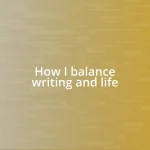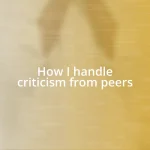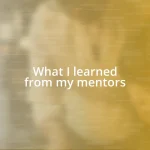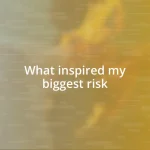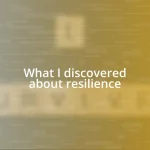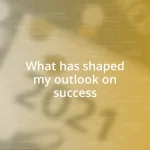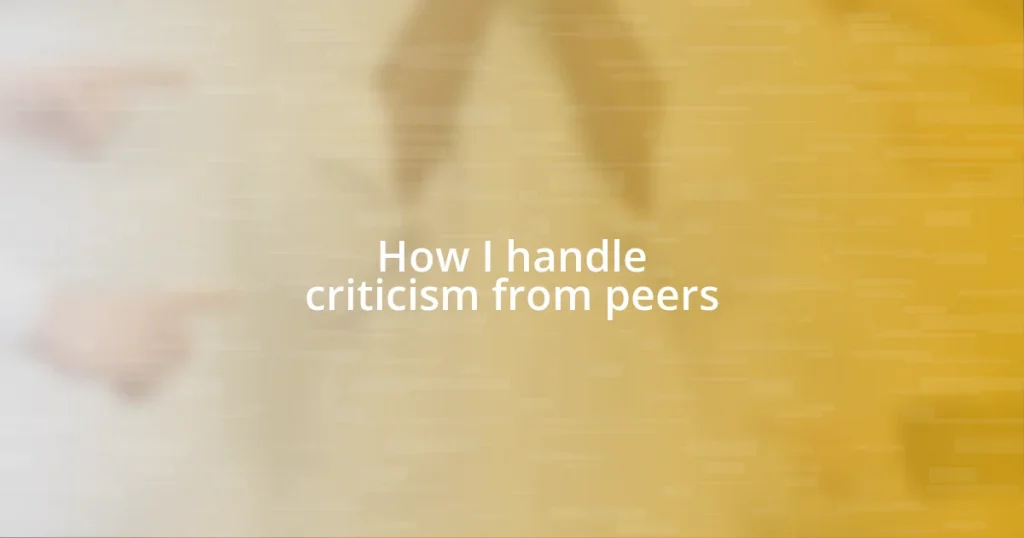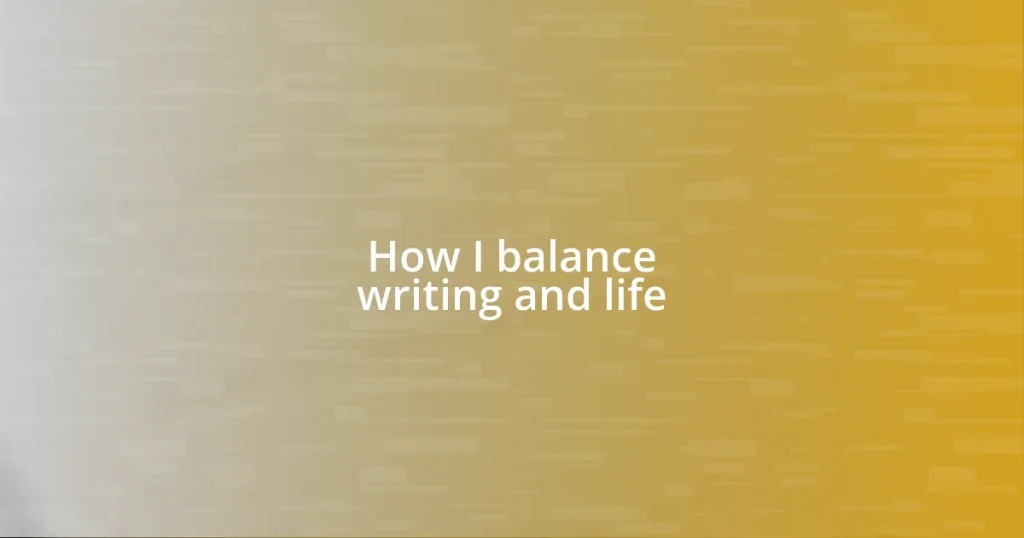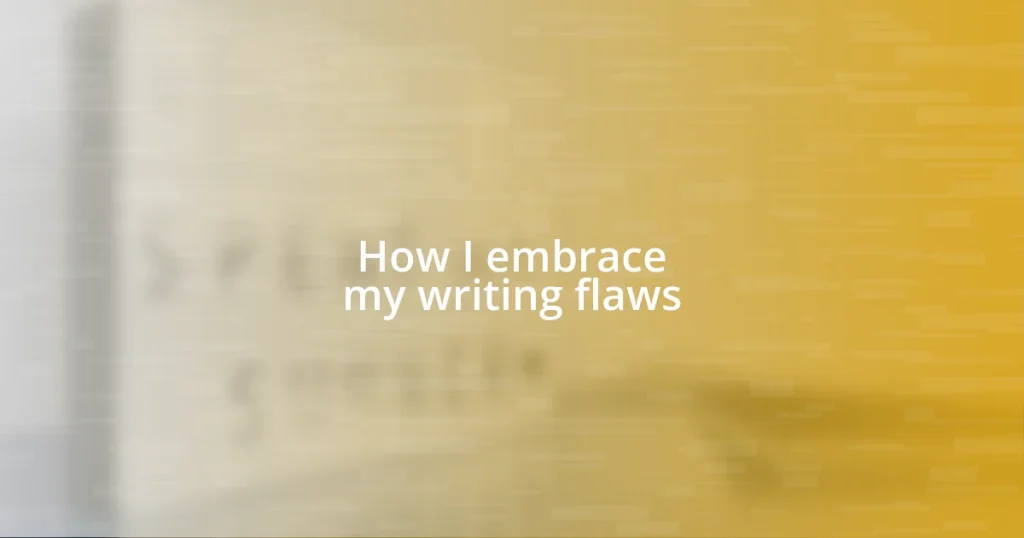Key takeaways:
- Understanding the distinction between constructive and destructive criticism is vital; approaching feedback with a growth mindset transforms it into an opportunity for personal and professional development.
- Recognizing emotional triggers allows for healthier processing of criticism, enhancing the ability to engage in meaningful dialogues rather than reacting defensively.
- Practicing active listening and self-reflection fosters a supportive environment for feedback, encouraging growth and resilience in the face of criticism.
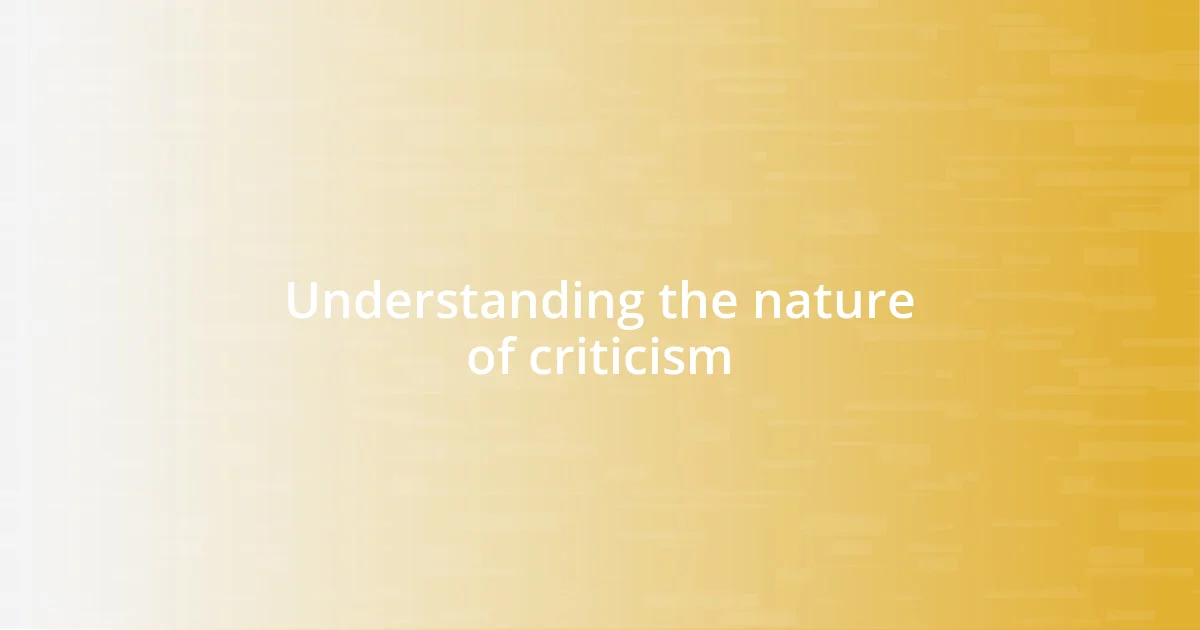
Understanding the nature of criticism
Criticism, at its core, is a reflection of perspectives and experiences different from our own. I remember receiving feedback on a project that, at first, felt like a personal attack. However, this jolt made me question: Was the criticism truly about me, or was it about the work? This inquiry helped me understand that criticism often stems from a desire to improve or from someone else’s viewpoint rather than a personal fault.
There’s a big difference between constructive and destructive criticism. I once had a colleague who would offer critique that felt more like a jab than advice. It took me some time to recognize that their delivery wasn’t a reflection of my worth, but rather their struggle with communication. Have you ever noticed how a friendly tone can magically transform a critique into a valuable learning opportunity? Understanding this nature made me appreciate the nuanced layers within feedback, enabling me to dissect it critically rather than react defensively.
Criticism can also serve as a catalyst for growth when viewed through the right lens. When I received tough feedback in a workshop I attended, I felt vulnerable. But instead of letting it discourage me, I chose to embrace it. I realized that each piece of criticism could act as a stepping stone, helping me refine my skills. How can we shift our mindset to see criticism not as a setback, but as the fuel for our personal and professional development? This mindset change not only fosters resilience but also enhances our ability to connect with others, creating a more supportive environment for everyone involved.
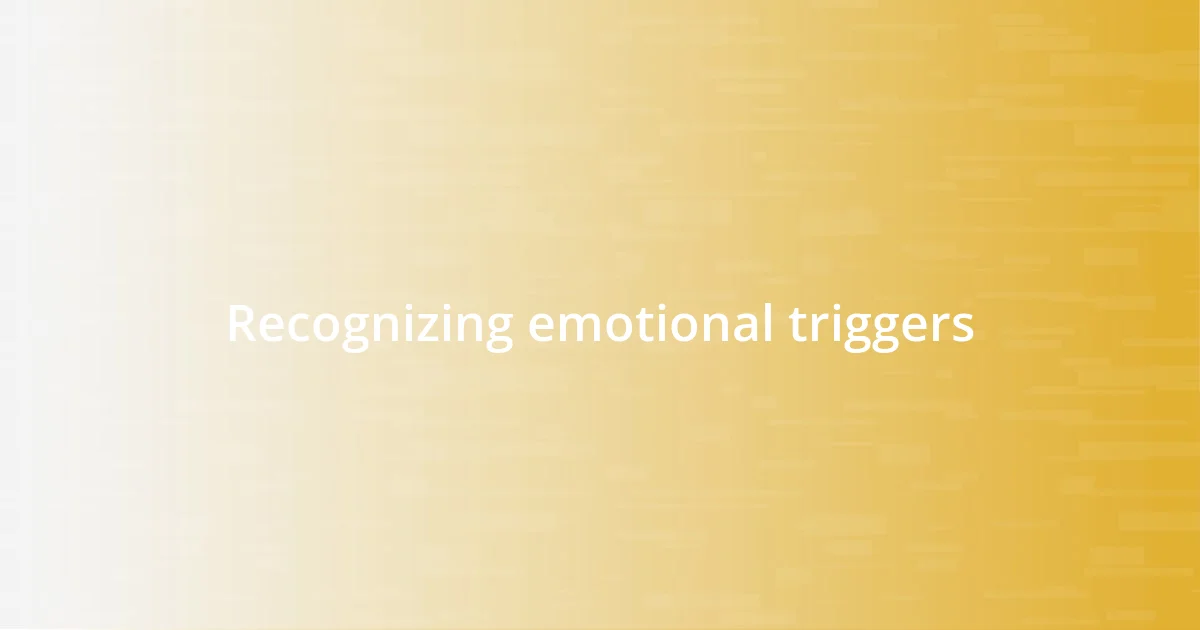
Recognizing emotional triggers
Recognizing emotional triggers plays a crucial role in how we process criticism. I’ve noticed that certain words or phrases often evoke an unexpected emotional response from me, even if the feedback itself is constructive. For instance, when someone critiques my creativity, I find myself feeling defensive, as if they are questioning my identity. This reaction has taught me to pause and identify what specifically triggers these feelings.
Here are some common emotional triggers I’ve recognized in myself:
- Personalization: I often take feedback personally, feeling it directly reflects my worth.
- Delivery Style: Sarcasm or an aggressive tone in delivery can heighten my anxiety and defensiveness.
- Past Experiences: Previous negative feedback can linger, making me overly sensitive to similar comments now.
- Unrealistic Standards: If I’ve set lofty goals, criticism can feel like a setback, triggering disappointment.
By being aware of these triggers, I’ve learned to take a step back and reflect before reacting, allowing for a healthier dialogue around the feedback I receive.
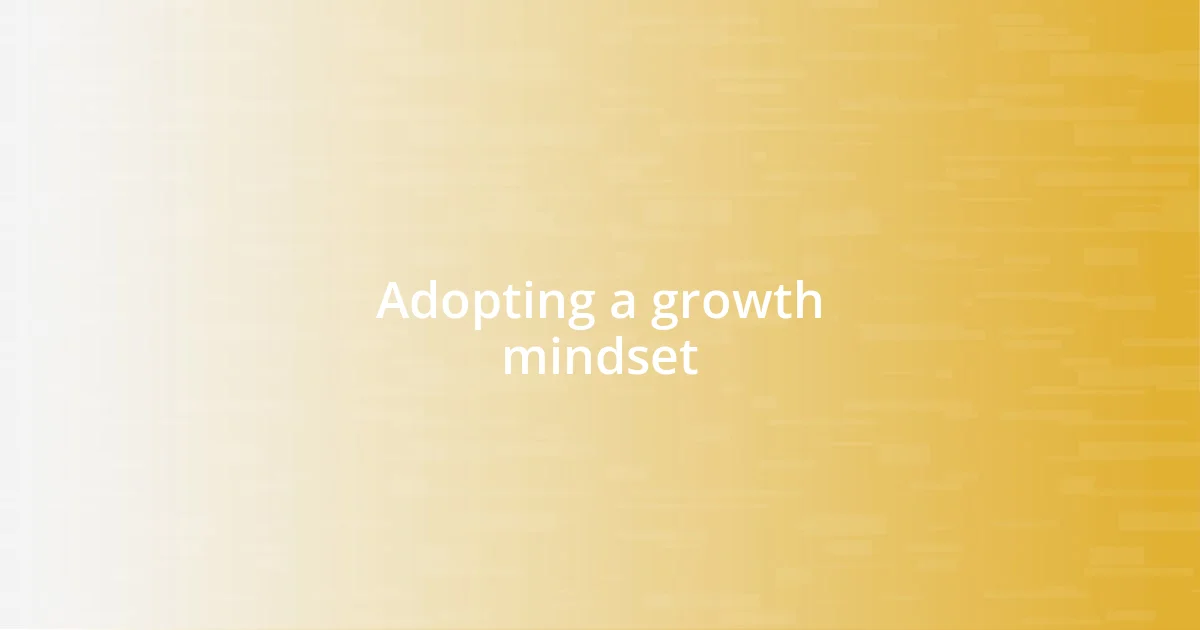
Adopting a growth mindset
Adopting a growth mindset has significantly transformed how I perceive criticism. When I started to view challenges as opportunities, my initial defensiveness started to fade. For instance, during a team project, I received critical feedback on my ideas that initially felt like a blow. However, I soon realized that this feedback wasn’t about me being wrong; it was about us finding the best solutions together. Embracing this perspective turned a potentially negative experience into a collaborative one.
I find it helpful to see criticism as a gift rather than a setback. There was a time when I dreaded my performance reviews. They felt intimidating, leaving me anxious for days. But one day, I decided to approach it differently. I viewed the reviewer’s input as a roadmap for my personal growth instead of a judgment on my abilities. This shift in mindset made those meetings something to look forward to, as they became opportunities for insight and improvement.
In my experience, adopting a growth mindset when receiving criticism not only fosters learning but also encourages open communication. Have you ever found that the feedback you dreaded the most actually provided the greatest opportunity for growth? I certainly have. By shifting the lens through which I view criticism, I now seek out feedback actively. This journey has led me to grow immensely, turning the discomfort of critique into something positive and constructive.
| Fixed Mindset | Growth Mindset |
|---|---|
| Belief that skills are innate and cannot change | Belief that skills can be developed with effort and feedback |
| Sees criticism as a personal attack | Sees criticism as constructive feedback |
| Avoids challenges to maintain comfort | Embraces challenges as opportunities for growth |
| Gives up easily | Persists in the face of setbacks |
| Feels threatened by others’ success | Finds inspiration in others’ success |
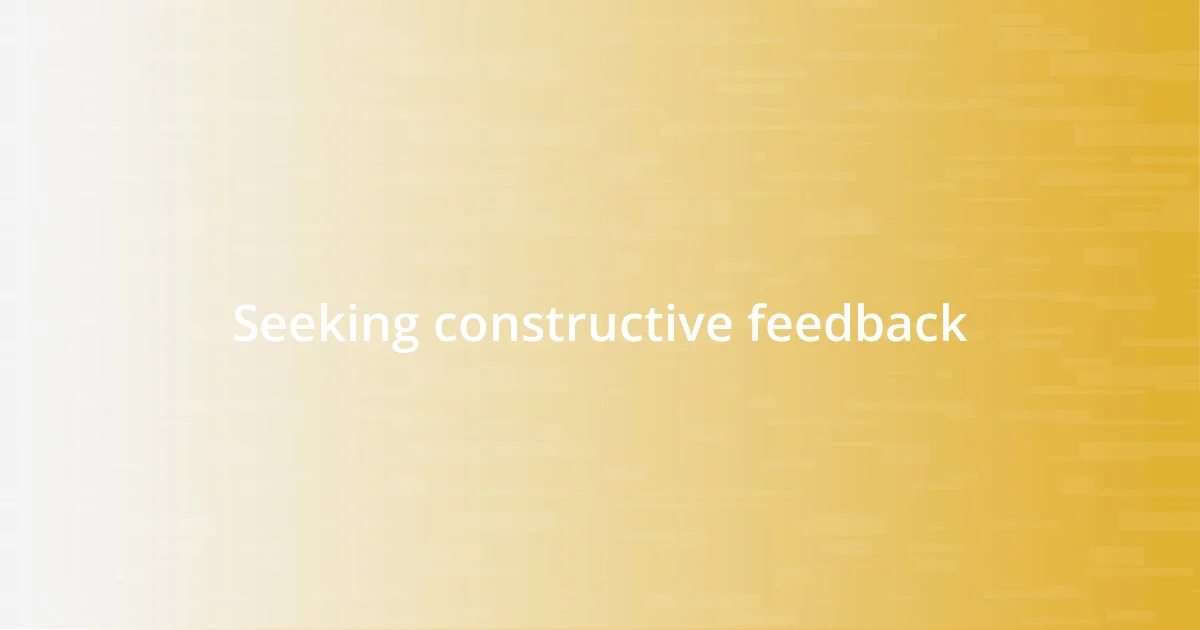
Seeking constructive feedback
When seeking constructive feedback, I always strive to create a safe space for open conversations. There was a time in a group project when I encouraged my peers to share their honest thoughts about my contributions. Their willingness to provide feedback helped me improve significantly, showing me that vulnerability can pave the way for growth.
I often ask specific questions when I seek feedback; this helps guide the discussion towards areas where I truly want to improve. For example, I once approached a colleague after a presentation and asked, “What did you think about my main points? Were they clear enough?” This simple query opened the door for an enriching dialogue that highlighted aspects I hadn’t considered.
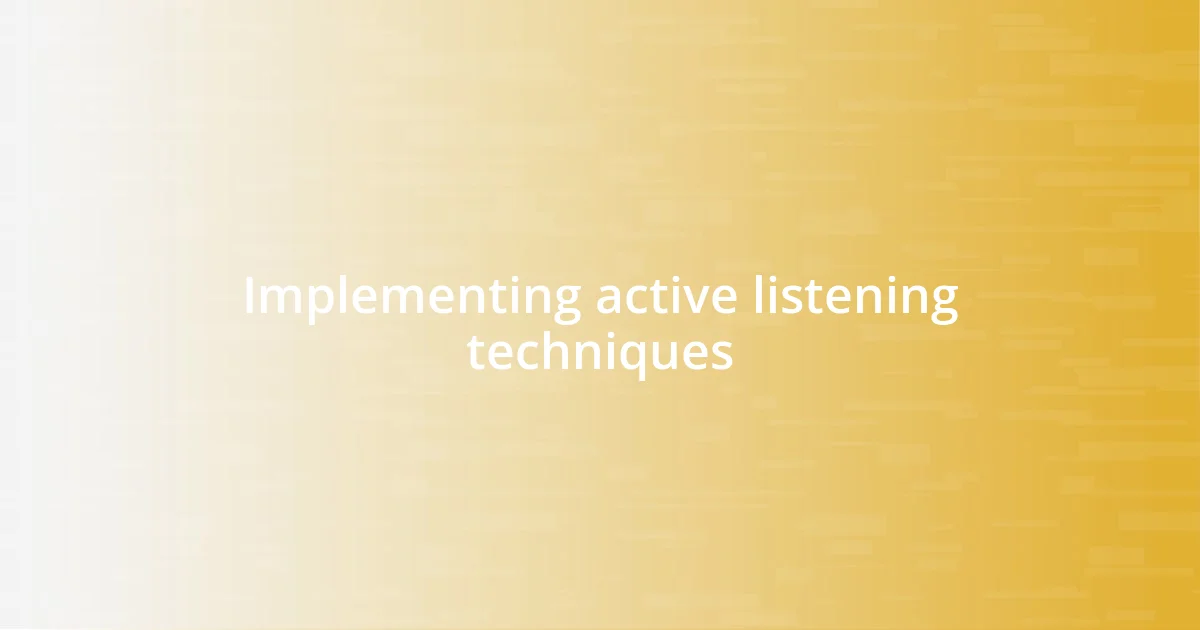
Implementing active listening techniques
Implementing active listening techniques has been a game changer for me when handling criticism. I remember a situation where a colleague pointed out some flaws in my project proposal. Instead of jumping to defend myself, I made a conscious effort to really listen, nodding and maintaining eye contact. This simple practice not only helped my colleague feel heard but also allowed me to digest their feedback more constructively.
One technique I frequently use is paraphrasing what the other person said. This not only demonstrates that I’m engaged but also gives me the chance to clarify any misunderstandings. Once, after receiving extensive feedback, I restated their points to confirm my understanding: “So, if I get this right, you’re suggesting I focus more on the data analysis portion?” Their surprise at my effort to engage deepened our discussion and led to more in-depth insights that I hadn’t considered.
I’ve discovered that asking follow-up questions can further enrich the dialogue. When someone shares criticism, I find it beneficial to ask, “What specific change would you suggest for the future?” This not only provides clarity but also demonstrates my willingness to grow. Reflecting on these moments, I often wonder: how much do we miss by simply not listening? I used to shy away from constructive dialogue, but embracing active listening has transformed the way I approach feedback.
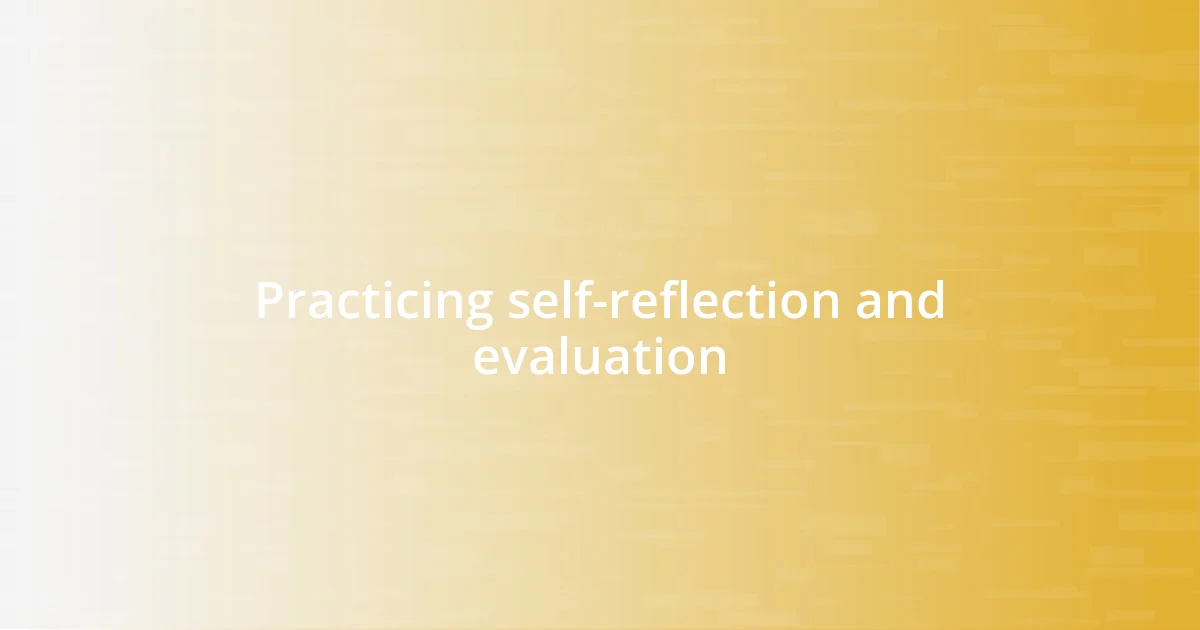
Practicing self-reflection and evaluation
Practicing self-reflection is a crucial step for me in processing criticism. I often take time after receiving feedback to assess how I reacted in that moment. For instance, there was a time when a peer pointed out flaws in my presentation style. Initially, I felt a wave of defensiveness, but through self-reflection, I came to realize that my body language may have conveyed insecurity. This acknowledgment helped me understand the importance of presenting myself confidently in the future.
Self-evaluation allows me to dig deeper and identify patterns in my responses to feedback. I keep a journal where I note down situations involving critique and my reactions to them. This practice has illuminated a personal trend: I often brush off negative feedback as trivial. Recognizing this has been enlightening; I now ask myself, “What can I truly learn from what they said?” This shift in perspective has opened up opportunities for meaningful improvement.
Moreover, I find that discussing my reflections with trusted peers enhances this process. Once, after a challenging feedback session, I turned to a close friend and shared my thoughts about how I felt dismissed. Their perspective prompted me to reevaluate my approach to feedback-seeking. It turned into an enriching dialogue where we both learned from each other’s experiences. Isn’t it fascinating how self-reflection can transform our relationships and understanding of ourselves during moments of critique? Through these conversations, I’ve gained clarity about my growth and better strategies for handling future feedback.
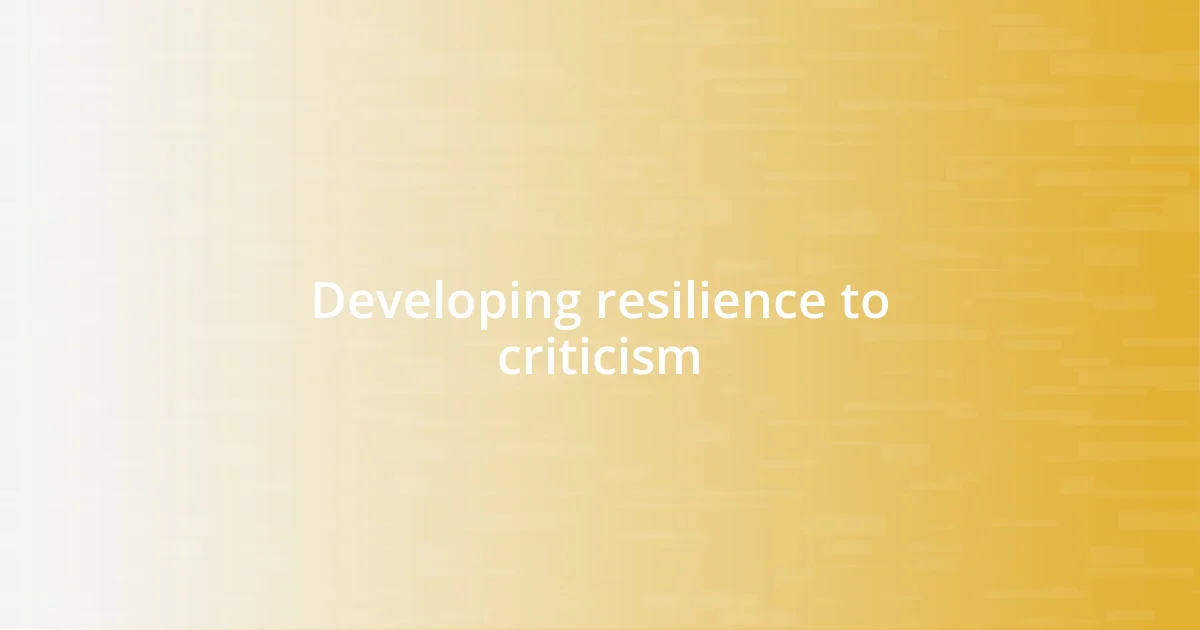
Developing resilience to criticism
Resilience to criticism often requires a shift in mindset. I recall a time when a friend offered constructive feedback on my writing. Rather than feeling threatened, I took a deep breath and chose to view it as an opportunity for growth. What if we approached criticism not as a reflection of our worth but as a stepping stone to improvement? This simple reframing has been pivotal for me in building resilience.
Building resilience isn’t just about enduring criticism; it’s about responding to it with openness. I remember a particularly challenging moment when my manager criticized my work during a team meeting. My initial instinct was to retreat into my shell. Instead, I decided to engage with the feedback. I asked for specific examples and suggestions for improvement. This proactive approach not only diffused my defensiveness but also galvanized my motivation to enhance my skills. It’s amazing how a change in approach can not just help us endure but thrive.
In my experience, surrounding myself with supportive peers significantly boosts my resilience. There was an occasion when several colleagues came together to discuss ways to improve our projects. Hearing their varied viewpoints was enlightening. It made me realize that no one person has all the answers, and often, collective insights bring the most value. So, how can we cultivate a community that supports resilience? For me, it begins with fostering a culture of open dialogue, where everyone feels safe sharing constructive criticism.
